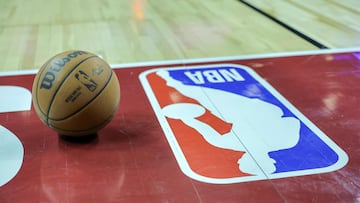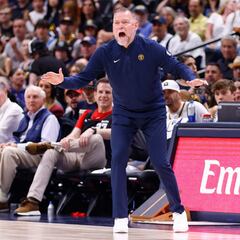Is the NBA the most competitive professional sports league in the U.S.A.?
Unlike the other major sports leagues in the country, the NBA has demonstrated that there are nobody does it better when it comes to the idea of parity.


From the days of the Celtics and Lakers to the Bulls and then of course the Cavs and the Warriors, there have been periods of time in the NBA where one team has overrun the rest. Indeed, this has been the case in most professional sports leagues, however, one has to admit that the NBA has become something very different over the last few seasons, with no champion managing to win two in a row. Indeed, none have made it to the second round.
The NBA is tough on champions
When one takes a look at the last 6 seasons in any major sports league in the U.S.A., it doesn’t take long to see that the NBA sits atop the list in terms of parity. Consider for a moment that with their loss on Sunday night, the Denver Nuggets confirmed that we will have a new champion for the sixth straight season. In that same time frame, the NFL has given us three, MLB has seen four, and the NHL has come close with 5. If the idea is to entertain the fans, then the NBA has seemingly got the formula right, unless you’re a Nuggets fan.
That makes 6 consecutive years where we haven’t even had a repeat CONFERENCE champion, let alone NBA champion.
— Jason Timpf (@_JasonLT) May 20, 2024
The league is unbelievably stacked with talent right now.
This of course brings us to the question of ‘why?’, to which the answer would be layered. Some will point to fatigue due to longer seasons, which has led - so some say - to an increased number of injuries. Others will tell you it’s down to salary cap restrictions, which have made it more difficult for teams to turn themselves into ‘super teams’ via player acquisition. Regardless of where you stand, the point is that the NBA has a level playing field, or court if you will. Of the teams that remain in the playoffs (Timberwolves, Pacers, Mavericks, and Celtics) all have finished with a losing record in at least one of the last four seasons. It’s also worth noting that none of those teams have an MVP on their roster either. What they do have is the next generation of stars i.e., Anthony Edwards, Tyrese Haliburton, Luka Doncic, and Jayson Tatum respectively.
Michael Malone has a theory
As mentioned above, there are those who will tell you that the ever-changing landscape of the NBA is down the strict nature of the cap and the effect that it has on top-tier teams and to be fair, they might have a point. Indeed, Denver Nuggets head coach Michael Malone spoke directly to that idea after the 98-90 Game 7 loss to the Timberwolves which eliminated his team - the defending champion - from the playoffs.
Related stories
“We knew it was hard, something I talked to our team about in training camp,” Malone said. “With the rules being what they are now, I think it’s going to become even harder and harder to repeat as champions.” Now, what Malone is talking about here are the rules related to luxury taxes and the teams they are applied to, more specifically what is referred to as the ‘second apron’. In simple form, there is an amount that teams are permitted to spend on players. Once that threshold is reached, they are no longer permitted to use their exceptions on free agents or players in the buyout market i.e., they face restrictions. This, as you can imagine poses a problem for teams as players improve and by extension demand higher salaries because it creates a situation where the only way to avoid the aforementioned second apron is by giving up one of their stars.
For years the NBA has chased NFL-like parity. Well three of the four conference finalists are new and the league will crown a new champion for the sixth straight season. Dynasties, it seems, are dead.
— Chris Mannix (@SIChrisMannix) May 20, 2024
To be clear, the reason the NBA instituted such a rule was to make it more difficult for dynasties to occur such as we saw with the Bulls, Cavs, and Warriors. What it has done, however, is actually create a scenario where teams that were mid to bottom level before, can now realistically plot a course to a championship in a much shorter time with much less wheeling and dealing in the market. Of course, if you happen to be a fan of one of the ‘bigger’ teams, that idea might not sit too well with you.


Complete your personal details to comment